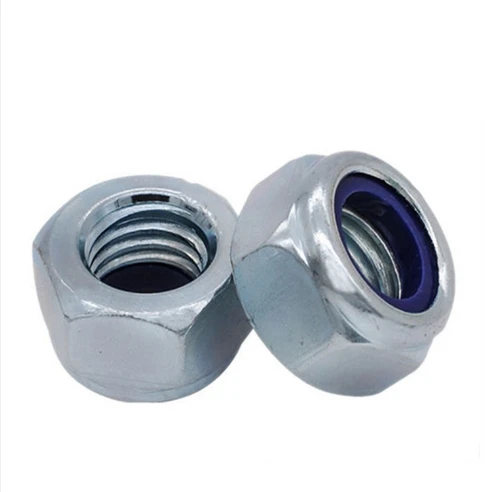best plastite screws
Dec . 14, 2024 20:14 Back to list
best plastite screws
The Best Plastic Screws A Comprehensive Guide
In the broad landscape of fasteners, plastic screws have emerged as a viable option for various applications, especially where corrosion resistance, lightweight characteristics, and electrical insulation properties are paramount. This article explores the best plastic screws available in the market today, delving into their types, applications, advantages, and factors to consider when choosing the right plastic screws for your projects.
Understanding Plastic Screws
Plastic screws are made from various polymers, including nylon, polycarbonate, polypropylene, and acetal. These materials offer unique properties that make plastic screws suitable for specific applications. Depending on the manufacturing process and the material used, plastic screws can be produced in different shapes and sizes, making them versatile fasteners.
Types of Plastic Screws
1. Nylon Screws Among the most popular plastic screws, nylon screws are known for their excellent strength-to-weight ratio and corrosion resistance. They are widely used in the electronics, automotive, and construction industries due to their durability and resistance to chemicals.
2. Polycarbonate Screws Polycarbonate screws are recognized for their toughness and impact resistance. They are ideal for applications requiring high transparency and are commonly used in safety equipment, light fixtures, and various electronic devices.
3. Polypropylene Screws These screws offer superior chemical resistance and are often found in applications involving aggressive chemicals or exposure to moisture. Polypropylene screws are frequently used in medical devices, automotive components, and plumbing fixtures.
4. Acetal Screws Acetal screws are prized for their low friction properties and high tensile strength. They excel in applications where high dimensional stability is required, such as in precision machinery and automotive parts.
Advantages of Plastic Screws
- Corrosion Resistance Unlike metal screws, plastic screws do not rust or corrode, making them ideal for use in humid or corrosive environments.
- Lightweight Plastic screws are significantly lighter than their metal counterparts, which can contribute to overall weight reduction in assemblies, particularly in aerospace and automotive applications.
- Electrical Insulation Plastic screws are non-conductive, making them suitable for electrical applications where grounding or short-circuiting is a concern.
- Cost-Effective In many cases, plastic screws are more affordable than metal screws, especially for large-scale manufacturing where plastic screws can be produced quickly and in bulk.
best plastite screws

Applications of Plastic Screws
Plastic screws find applications in various industries due to their adaptability
- Electronics Plastic screws are frequently used in the assembly of electronic devices, from televisions to smartphones, where they can prevent electrical interference and ensure product safety.
- Automotive The automotive industry utilizes plastic screws for interior trim, engine covers, and other components where lightweight and corrosion resistance are vital.
- Construction In construction, plastic screws are used for attaching fixtures, window frames, and siding materials, particularly in environments that may subject them to moisture or chemical exposure.
- Medical Devices The medical industry often employs plastic screws in devices where cleanliness and corrosion resistance are critical.
Choosing the Right Plastic Screws
When selecting plastic screws for a specific application, several factors should be considered
1. Material Properties Assessation of the operational environment, including exposure to chemicals, temperature, and moisture, is crucial in determining the most suitable plastic type.
2. Strength Requirements Consider the load-bearing requirements of your project. Nylon and acetal screws tend to offer higher tensile strength compared to polypropylene.
3. Installation Method Ensure the design of the screw head matches the tools and equipment you plan to use for installation.
4. Cost and Availability Finally, consider the cost of the screws and their availability. Bulk purchases might offer cost savings for larger projects.
Conclusion
Plastic screws are an excellent alternative to metal fasteners in many applications, offering a range of advantages, including corrosion resistance, lightweight properties, and electrical insulation. By understanding the types available and their specific applications, along with careful consideration of material properties and environmental factors, you can select the best plastic screws for your needs. With innovative designs and an ever-expanding range of uses, plastic screws are set to play an increasingly important role in modern manufacturing and construction.
Latest news
-
High-Quality Panel Stud Bolt Reliable Panel Stud Bolt Factory & Suppliers
NewsJul.08,2025
-
High-Precision Fine Thread Locknuts Manufacturer & Supplier Custom Solutions
NewsJul.08,2025
-
PH Imperial Stud Bolt – High Strength Fasteners from Leading Supplier & Factory
NewsJul.07,2025
-
High-Quality Allen Wrench Bolts Leading Factory, Company & Suppliers
NewsJul.07,2025
-
Wholesale Ball Stud Bolt - High Quality Supplier & Factory Price Reliable Wholesale Ball Stud Bolt Company
NewsJul.06,2025
-
High-Strength Alloy Bolts Manufacturer & Supplier Quality Alloy Fasteners Factory
NewsJul.06,2025
